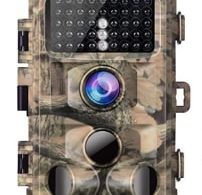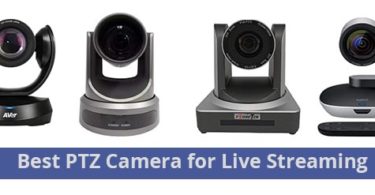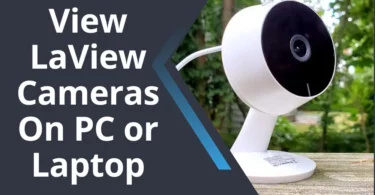As an Amazon Associate, I can earn from qualifying purchases. Learn more.
According to Wikipedia, United States has had the most workplace killings, school massacres, and other mass murders incidents. While we can neither confirm nor deny these figures, it’s clear privacy should be the least of our worries. The reason for saying this is because I would like us to look at various laws on surveillance cameras in public places. Some people tend to feel that the monitoring systems are an invasion of privacy, but does it really count as illegal?
Well, first of all, a public place isn’t only the streets, parks, and open-air markets as many people think. Any outdoor or indoor area to which the public has access is also a public place even if it’s privately owned. That means schools, theatres, banks, bars, libraries, hospitals, shopping malls, hotels, and motels are also public places.
When it comes to surveillance laws, however, there are places even in a public space you can’t set up security cameras. In some cases, the law does allow mounting the cameras but has specific rules over the recording. Then, it’s up to you to understand and adhere to these rules or else you end up on the wrong side of the law while trying to protect your property.
Are Surveillance Cameras in Public Places Worth it?
In my opinion, video surveillance is one of the most useful technologies in our time. However, more than 43% who participated in a Debate.org survey a while back agreed that monitoring in public areas is an invasion of privacy.
Anyhow, having security cameras in places like schools, malls, airports, and hospitals is worth it. Some of the advantages include:
Reduce Crime Rate: Just like with a home security camera system, public CCTV can help deter crime. It’s not many criminals will be willing to commit a crime if there’s a chance to get caught.
Help Catch Criminals: The current surveillance cameras for public places have far more superior technologies and features than decades ago. For instance, it’s very easy to catch up with the lawbreakers with software like facial and license plate recognition.
Ensure public safety: in places like airports, security cameras with AI technologies like package detection or loitering detection can help prevent a crime before it happens. The same applies to the advanced PTZ outdoor cameras set up in parking lots.
Monitor the traffic flow: security cameras on the highways can come in handy in monitoring the behavior of motorists. It can also help guide on the quickest routes to follow, as well as quick detection of accidents.
Aid in prosecution: whether it’s on the streets, highways, or malls, a good CCTV system can help provide evidence and clues of an event that has happened. Thus, speeding up conviction.
Monitor Health Condition: In places like airports, hospitals, and schools, a thermal surveillance camera can help scan individuals for fevers. So, they could be very useful at a time like now in detecting the initial symptoms of the COVID-19 virus.
Enhance productivity: As a store manager, installing surveillance cameras can help track the performance of your in-store assistants. It can also raise the work rate of an employee who works best under observation.
Enhance overall convenience: that’s right. every motorist will become careful on the road when they know they’re under 24/7 monitoring. Also, it will be easier and quicker to solve disagreements since there’s credible proof.
What Are The Laws On Surveillance Cameras In Public Places?
Overall, the laws on surveillance cameras in public areas aren’t far apart from those governing home security systems. You can use them interchangeably if you do know the specific ones for your state.
Speaking of states, the surveillance laws that you have in Arkansas will not apply in California if you relocated. Various states have varying laws and rules, which means you could find yourself on the wrong side of the arms if you don’t pay attention.
For instance, California has quite many strict rules, and not just for security cameras. For example, you have to be clear on the size and installment requirements if you want to install a front or rear dash cam in your private car. Then, you have to comply with the DOJ’s standards if you’re buying or even selling long gun safe.
Anyways, back to surveillance cameras, there are about five laws that you have to consider if you want to install the systems in a public place. They include:
1. The Surveillance Law on Private Spaces
Even in public places, we expect a bit of privacy in areas like bathrooms, locker rooms, or changing rooms. In about all US states, it’s illegal to mount surveillance cameras in such places considered private. And if you feel it’s important, a state like Arkansas and Tennessee requires you have the consent of those being watched. Otherwise, it’s illegal and the judge may rule in favor of the wrongdoer.
2. The Surveillance Law on Audio Recording
Technically, a 4K security camera system with audio functionalities is more worthwhile compared to one without. However, it’s illegal to record audio in public places without following the present rules. The rules are actually only two of them, whereby 37 of the 50 states require you to record audio as long as one of the people involved knows about it.
The second rule applies to California, Nevada, Washington, and ten other states, in which case you can only record audio with CCTV if all parties involved know about it.
3. The Surveillance Law to Hidden or “covert” cameras
While you might be tempted to catch a thief in silence, the use of hidden security cameras in public places is illegal in several states. If it’s Georgia, you can have your CCTV systems in both private and public spaces, but only if they’re in plain sight. That’s more like saying you can’t use these small covert cameras as in Florida and Alabama.
Other states like Kansas, Maine, Delaware, and New Hampshire require you have consent to use any kind of a hidden surveillance camera on your establishment.
4. The Surveillance Law on Recording Communications
In California, there’s a law that prohibits video recording confidential communication. Put simply, this means you could be prosecuted if you leaked CCTV footage of two secret lovers who intended to keep their conversation to themselves. According to the law, it’s an “improperly obtained recording” and may subject your firm to heft legal damages.
5. The Surveillance Law of Consent
In Hawaii, the state law allows you to install cameras in your store, bar, or any other public place you want to protect. However, you must have the permission of those being watched.
An important note of Laws on Public Surveillance cameras
As a born American, you know each of our fifty states operates according to its individual constitution. Of course, the local governments share a lot of similar features, but each holds sovereignty over its territory and domestic affairs.
In simple words, each state has varying ways of governance, and so are the laws on surveillance cameras. The table below shows how the laws on surveillance in public places vary across some of the states.
Common Laws on Surveillance Cameras in the Various U.S. States
| No. of States | Specific States | Law On Surveillance | Rule of Surveillance Law |
|---|---|---|---|
| 1 | Arkansas | In private areas | Can legally record only with consent |
| 1 | California | Confidential communication | Illegal to make a video recording without consent |
| 1 | Hawaii | All security cameras | Can install only with consent |
| 1 | Georgia | In private and public areas | Can only use if cameras are in plain sight |
| 3 | Michigan, Tennessee, Utah | In private places | Need consent before hiding video cameras there |
| 3 | Alabama, Florida, Minnesota | Hidden Video surveillance | Only legal in non-private areas |
| 13 | California, Connecticut, Washington, Nevada, Oregon, Illinois, Michigan, Montana, Maryland, Florida, Pennsylvania, Massachusetts, New Hampshire, | Video Recording with Audio | You must have consent from all parties being recorded |
| 5 | Delaware, Kansas, Maine, New Hampshire, South Dakota | Hidden camera surveillance | Need permission to use any kind of covert camera |
| N/A | Other States | None at the moment | No rules to follow on a video surveillance case |
Note, this table shows only the specific video surveillance law as per state. You can visit your local government site or office for more details on the subject.
As for the states without laws, it doesn’t mean you can just install security cameras wherever you want without any consequences. No. it simply means the ruling council doesn’t have a set of rules that it can follow in a case concerning video surveillance. So, the judge may rule in your favor or against you (as the owner of the cameras).
Protect Yourself Legally
As we conclude, we can therefore conclude surveillance cameras could be helpful on the streets, malls, hotels, and other public places. They can help reduce the crime rate to some extent, as well as speed up investigation by using real-time evidence and clues from the captured footage.
Even so, you have to understand and adhere to the various laws on surveillance cameras in public places set by your state. Otherwise, you might end as an offender and even end up paying heavy legal fines after the court rules the real criminal as the victim.
If it’s your video surveillance that has captured a crime, you have to make sure the footage is compelling enough to prevail over any rights the accused may have.
Meanwhile, you can post signs warning that your area is under video and or audio surveillance. That way, the judge might deem your actions justified even if the accused cry that his/ her rights were violated.




